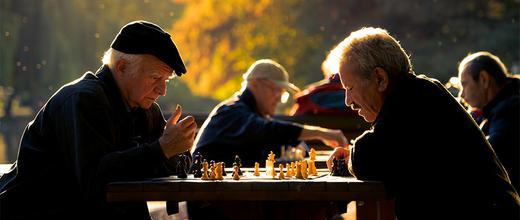The views expressed in our content reflect individual perspectives and do not represent the authoritative views of the Baha'i Faith.
While visiting my friend I heard her young daughter complain about a subject being studied in school. In her words: “I already know about that. We studied it last year.”
I asked her to tell me more, since it seemed to be a subject that one could study for many years without fully mastering it. She knew some facts and figures, but the relevance and application had not been explored.
This got me thinking more about the idea of knowing. The word itself sounds static and closed. On the other hand, “learning” sounds alive and organic. The distinction between these words is comparable to what we know about plants: What isn’t growing is dying.
There is also a practical side to this. In the mid–1950s Eric Hoffer wrote: “In a time of drastic change it is the learners who survive; the “learned” find themselves fully equipped to live in a world that no longer exists.”
Renowned coach and motivational writer John Wooden believed that learning never stops if we are open to it and recognize the opportunities it presents: “It’s what you learn after you know it all that counts.” By the way, Coach Wooden died just a few months before his 100th birthday!
Both quotations are as true today as when they were expressed by their authors—and maybe even more relevant considering the accelerating rate of change in our world along with the rapidly-accumulating total amount of human knowledge. If we agree with these ideas then we embrace lifelong learning, and that will prevent our falling into complacency. These words beckon us to become lifelong learners, which will help us to maintain our relevance even as we better understand the times in which we live.
What are the requisites to being lifelong learners? I would put open-mindedness first on the list, because without it then the rest cannot happen. A closed mind is like a doorway slammed shut and then blocked by old information, habits, prejudices, and even superstitions. On the other hand, open-mindedness invites consultation, cooperation, and an honest search for the truth. In the Baha’i teachings, Baha’u’llah warned all people:
… not to view with too critical an eye the sayings and writings of men. Let them rather approach such sayings and writings in a spirit of open-mindedness and loving sympathy. – Baha’u’llah, Gleanings from the Writings of Baha’u’llah, p. 329.
Another requirement of open-mindedness is humility, by which I mean putting our egos aside so that we can learn from others, to listen more than we speak, and to be willing to say “I don’t know” when that is the case. Combined with curiosity, this can constitute the force that drives us to investigate new ideas, consider a range of perspectives, and try new techniques for whatever we want to do.
Being receptive to change is closely linked to humility, because we may find ourselves ending up in a different position from where we started. Some of this may occur through feedback from others, or it may be the result of our own learning. It may be motivated through work requirements or an inner need-to-know.
All of this requires commitment to the process of learning, seeing it as investing in our own growth. Without learning we grow stale, our careers and relationships stagnate, and our lives become dull with routine.
In many places throughout his writings, Baha’u’llah encouraged learning and applying it in practical ways to the real, physical world:
Be anxiously concerned with the needs of the age ye live in, and center your deliberations on its exigencies and requirements. – The Tabernacle of Unity, p. 5.
Returning my thoughts to my friend’s daughter, I realize that her words may have been because of her youthfulness or even awkwardness in the presence of her parents. On the other hand, I wonder about her teacher and how the subject matter is presented. Thinking back to my own school days, much of it seemed boring at the time, at least until it was put into context. Bridging one year to the next, integrating topics across disciplines, adding narrative that shows relevance—these sorts of techniques can excite and motivate students.
Children and youth are the same as adults, driven by purpose. Education’s goals should include not just knowing information but also using it. That practical application can lead us to an even more important goal: to be motivated to always be a learner. Not only can that be fun, but also it can be the gateway to a satisfying future.

















Comments
Sign in or create an account
Continue with Facebookor